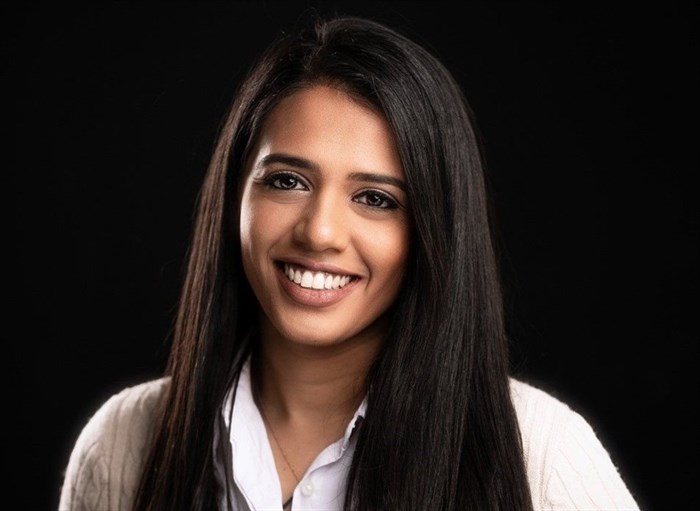
Top stories






More news

Marketing & Media
Ads are coming to AI. Does that really have to be such a bad thing?















The study, entitled, ‘Social Media and Covid-19: A Global Study of Digital Crisis Interaction Among Gen Z and Millennials’, surveyed 23,500 citizens in 24 countries (aged 18 to 40) between October 24, 2020, and January 7, 2021, to find out where Gen Z and Millennials in pandemic hotspots are getting their Covid-19 information, who they trust as sources, what their concerns are as a result of the pandemic, and their awareness of false news. It also looks at the size of their social media networks, how likely they are to share unverified information, and how they build their own crisis narratives.
Markets surveyed included South Africa, as well as Argentina, Australia, Brazil, China, Colombia, Egypt, France, India, Indonesia, Italy, Japan, Mexico, Morocco, Nigeria, Peru, Philippines, Russia, South Korea, Spain, Sweden, Turkey, United Kingdom, and the United States.
The Covid-19 pandemic created an “infodemic” as the spread of fake news on social media and other digital platforms threatened to derail efforts by health authorities globally to fight the pandemic and safeguard lives.
According to the report, the sharing of misinformation, amplified on social media, “resulted in a blatant disregard of public health directives, the promotion of useless or dangerous ‘cures’ and conspiracy theories, and the exacerbation of racial and political tensions. The constant bombardment of conflicting information can be overwhelming and cause some to stop paying attention even to crucial health news and guidance”.
Parusha Partab, strategy director at Wunderman Thompson South Africa, said national mainstream media and their social media platforms continue to be trusted channels for reaching Gen Z and Millennials with pertinent health information. However, in a handful of countries, respondents rely more on the WHO and alternative sources over national media.
The initial findings point to high digital literacy among Gen Z and Millennials, and science content on the pandemic has proved to be the most shareworthy, bucking the general trend on social media where funny, entertaining, and emotional content was thought to spread the fastest.
“These digital citizens are savvy when it comes to identifying credible news and communications sources, and this study gives valuable insight into their media consumption habits which will guide brands and marketers. While the awareness of fake news is high among Gen Z and Millennials, the challenge lies in recruiting them to actively counter it, rather than letting it slide,” says Partab.
The past year has taken its toll on this generation, and Covid-19 is not their only worry; they are grappling with multiple concerns. Overall, the risk of friends and family members contracting Covid-19 was the top concern of respondents (55.5%), closely followed by the economy crashing (53.8%). In fact, economic decline is the top concern of respondents in South Africa, and Australia, Argentina, Brazil, Colombia, Indonesia, Italy, Morocco, Nigeria, Peru, Spain, and Turkey.
Vaccines are now the obvious talking point, but Partab says don’t rely too much on celebrities and influencers in getting the vaccine message across. “The survey shows that 55% of Gen Z and Millennials are interested in information regarding a Covid-19 vaccine now. But, by contrast, the opinions of celebrities and influencers don’t rank highly when it comes to facts or health issues. The WHO remains the most trusted source of public health information (45.5% of respondents), followed closely by science and health experts.”
Partab shared "misinformation or 'fake news' around Covid-19 is a term that is often bandied about; however, it is not innocuous. During this global pandemic, misinformation coupled with overexposure can lead to apathy at the least or dangerous conspiracy. These online conversations have real-world consequences that threaten compliance and heighten fatigue. People are desperately seeking the light at the end tunnel, hopefully not at the expense of the road to get there."
From the study, six key insights were developed:
Key Insight 1: Mainstream media is still tops, although Gen Z and Millennials rely on multiple sources for their Covid-19 information. Friends and family ranked lower in terms of sources of information. Top sources of information include:
Key Insight 2: Science content is seen as shareworthy. What Gen Z and Millennials are most likely to share on social media :
Key Insight 4: Gen Z and Millennials have multiple worries beyond getting sick. A crashing economy was also the top concern of respondents in half of 24 countries surveyed:
It is hoped that the findings will be relevant to governments around the world; as well as health organisations, educators, media, and businesses to help them target health communications effectively.